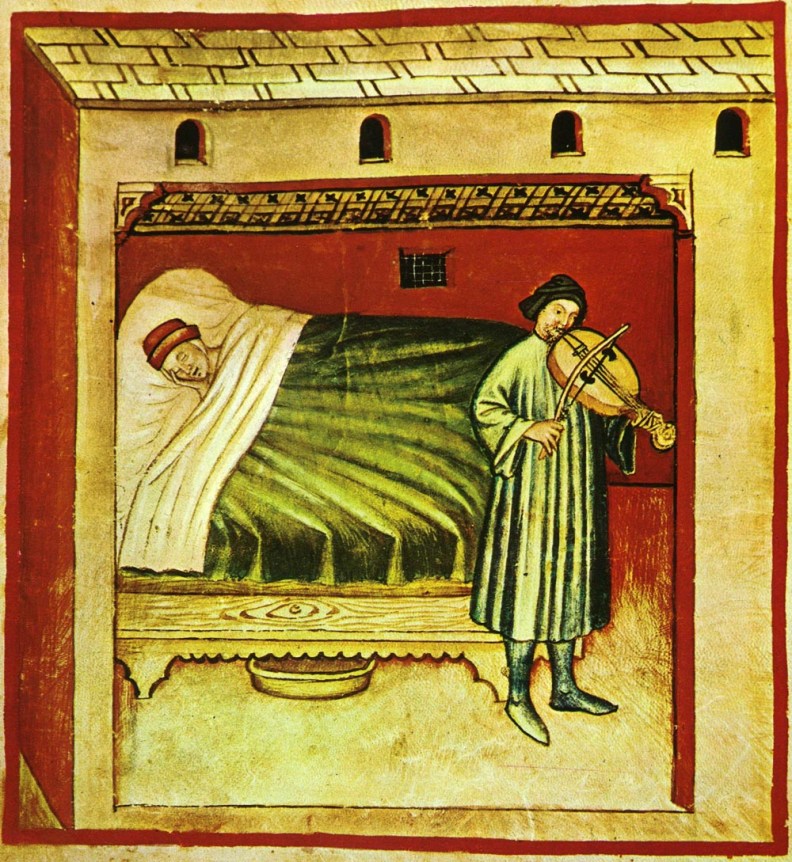The historian A. Roger Ekirch has argued that in Medieval Europe, and in many places prior to the Industrial Revolution, people would habitually wake up for an hour in the middle of the night.

I’m writing this at 10pm on a Saturday evening. Prior to the Industrial Revolution and the rise of inexpensive artificial light, this would have been very expensive – candles weren’t cheap! – so most people would have gone to sleep much earlier in the evening. But did they sleep right through the night?
A. Roger Ekirch has argued that medieval sleeping patterns were actually biphasic: most people would get to sleep early but then wake up in the middle of the night. They would stay awake for an hour or more, using that time to pray, write, go out visiting, or stay home and have sex. Then they would go back to sleep for another few hours before the new day dawned.
There’s a decent amount of evidence for this: in medieval England the two sleeps were called “first sleep” and “second sleep” (or “dead sleep” and “morning sleep”). I’m thinking back now to my earlier post on night thoughts and wondering whether they happened in this period of early morning wakefulness.
Some people today experiment with different sleep schedules: this medieval approach is called “segmented sleep” and involves two sleeps (9:30pm until 1am, then 4am until 7:30am), but others have tried siestas (11pm-4am, then 1pm-2:30pm) or triphasic (5:30am-7am; 2pm-3:30pm; 10pm-11:30pm) sleep. On weekends I’m apparently on something similar to an Everyman schedule (11pm-5am, then 1pm-1:20pm), but once my second child is born in a few months I imagine that I’ll be on the coveted “whenever you can grab it oh why can’t I sleep I really need to sleep” sleep schedule for a couple of years.
One Reply to “Medieval sleep”